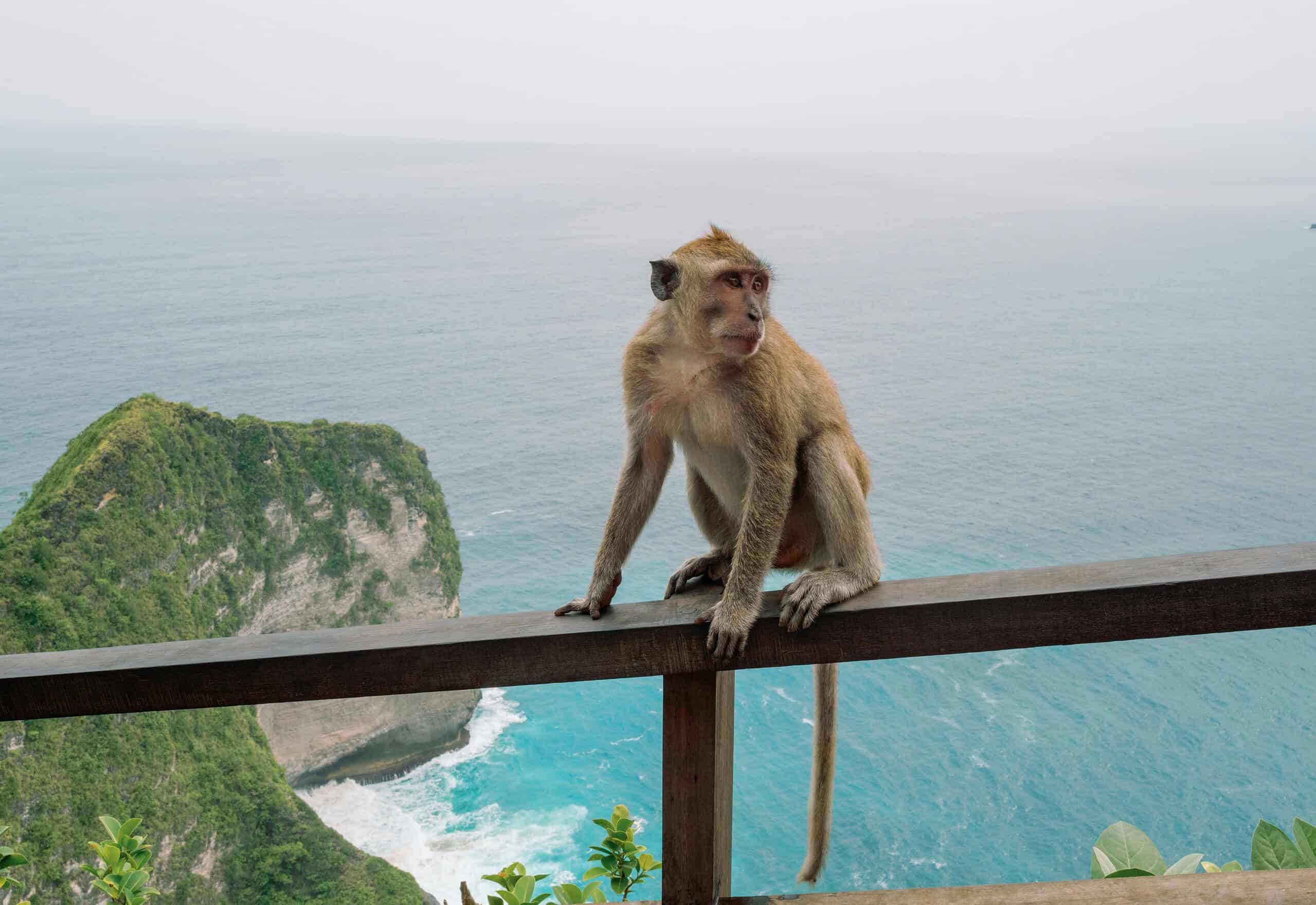What Not to Do in Bali: 13 Tourist Mistakes to Avoid
Bali is a dream destination, lush landscapes, rich culture, warm people, and postcard-perfect beaches.
But for all its beauty, it’s also a place where cultural missteps, over-tourism habits, or just plain lack of awareness can turn your trip sideways.
That’s why it helps to know what not to do in Bali before you land, for a smoother, stress-free trip.
Whether it’s temple etiquette, how to behave during Nyepi, or why the tap water isn’t your friend, these aren’t things meant to scare you off.
They’re just good-to-know tips that help you avoid discomfort, stay respectful, and make the most of your time on the island.
Be Respectful at Temples and Religious Sites
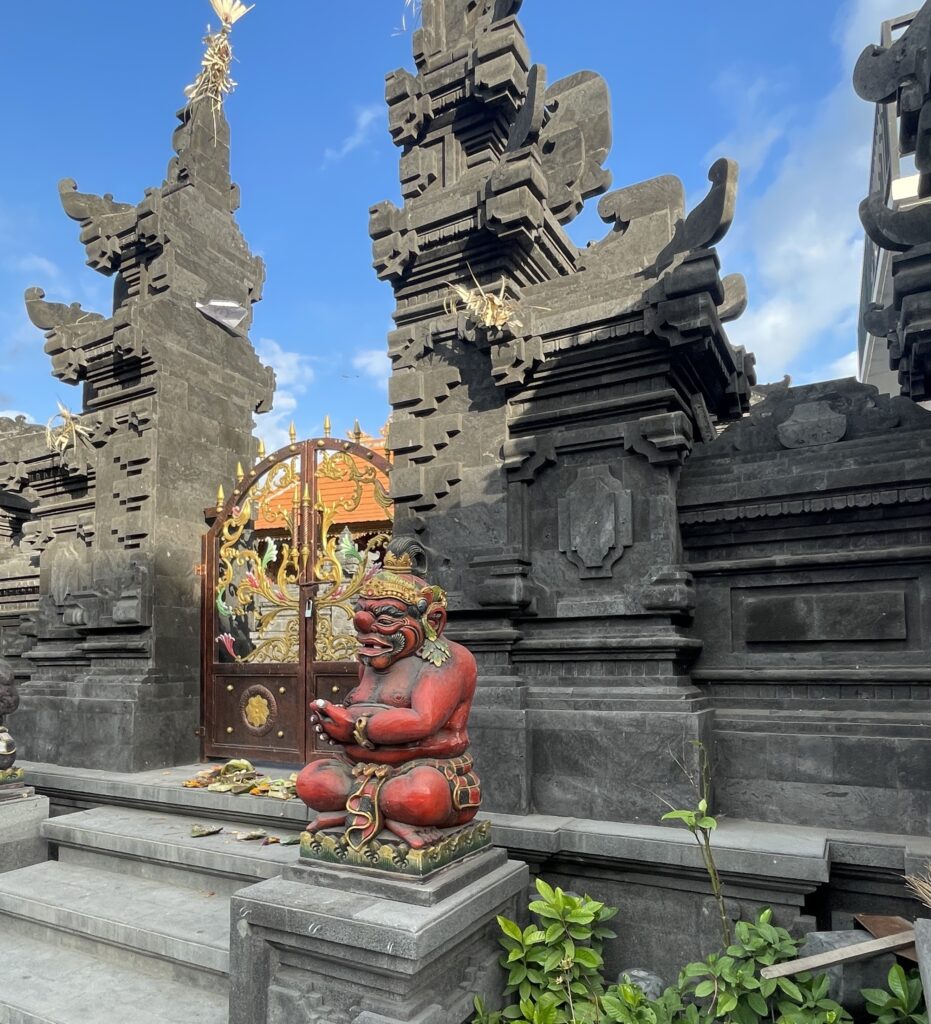
Temples in Bali aren’t just tourist attractions, they’re active places of worship deeply tied to Balinese Hindu culture. It’s important to treat them with the respect they deserve when visiting.
That means wearing appropriate clothing (sarong and sash are usually required), not climbing on sacred structures and never turning your back to the altar for selfies.
If a ceremony is happening, observe from a respectful distance and avoid interrupting.
Temples are stunning, but they’re not Instagram props. So take your photos, but do it respectfully, and be aware of your surroundings.
Someone nearby may be praying and would prefer to do so in peace, without being part of your photo.
Exploring Bali’s temple culture is often a highlight for travelers, and it’s just one of many memorable experiences featured in the best things to do in Bali.
Step Around, Not Over, Offerings on the Street
One of the most beautiful aspects of Bali’s culture is how present spirituality is in everyday life, and you’ll see it firsthand in the form of canang sari, the daily offerings left around temples, storefronts, homes, and sidewalks.
These small handwoven trays filled with flowers, rice, and incense are a way for locals to give thanks and maintain balance between the spiritual and physical worlds. You’ll often spot them placed on the ground, especially early in the morning.
It might seem harmless to step over one, but in Balinese Hinduism, it’s considered highly disrespectful.
Make it a habit to step around them, even when the streets are busy. It’s a small gesture that shows big respect for the local beliefs.
Bali Traffic Can Be Brutal — Plan Ahead
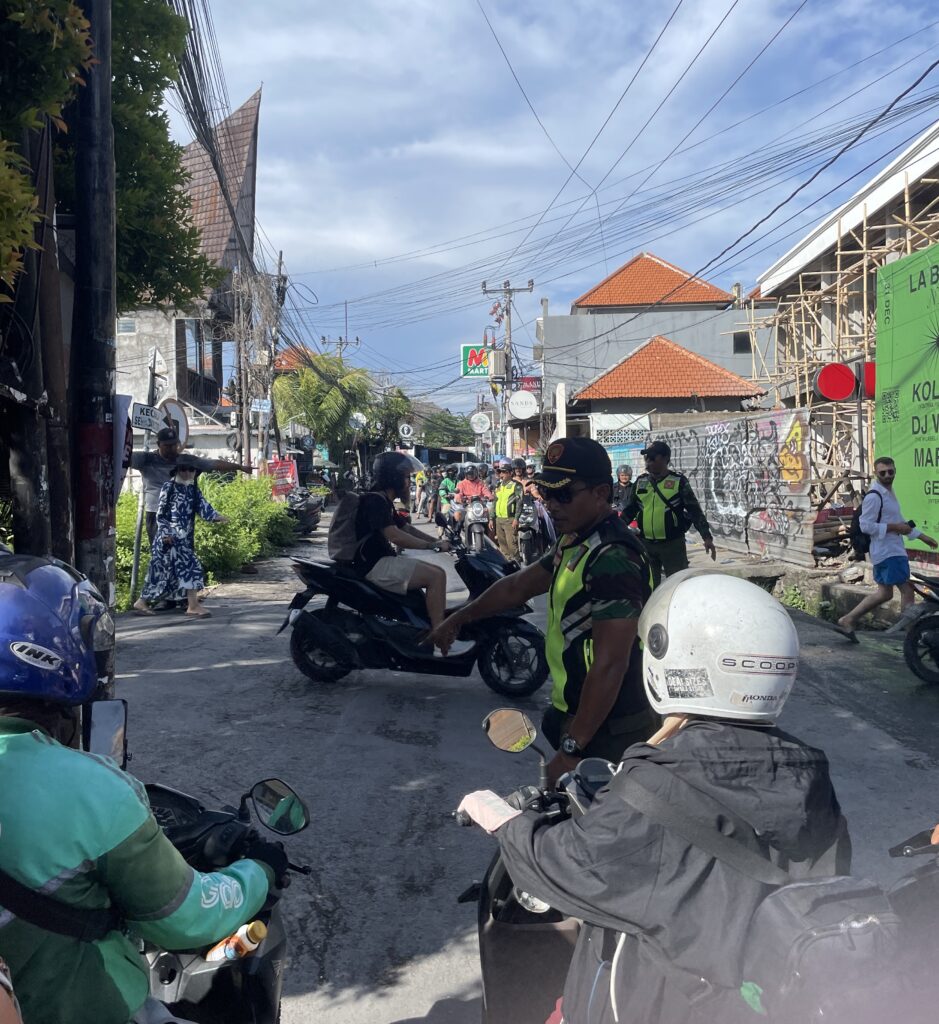
Bali’s roads weren’t built for the volume of traffic they see today. With narrow streets, limited infrastructure, and a mix of cars, scooters, and trucks all trying to squeeze through at once, traffic can be painfully slow, especially in hotspots like Canggu, Seminyak, and Ubud.
What might look like a 20-minute drive on Google Maps can easily double or triple during peak hours (think late afternoons or early evenings).
If you’ve got a dinner reservation, spa treatment, or airport flight, give yourself more time than you think you need. Seriously.
Even short trips between neighboring areas can be delayed by bottlenecks or road construction. Some intersections have traffic cops managing it all, it’s hectic to say the least.
Bottom line? Plan ahead, don’t overschedule, and accept that “Bali time” is a real thing. It’s all part of the island experience whether you like it or not, you’ll get there when you get there.
Be Careful with Alcohol in Bali
Alcohol is easy to find in Bali, and while beachside cocktails sound like the perfect way to spend an evening, there’s a darker side to be aware of — methanol poisoning.
Illegally brewed alcohol (known locally as arak) can sometimes find its way into cocktails, especially at cheap bars or poorly regulated establishments.
Methanol poisoning is very real, and has led to serious illness, blindness, and even death for unsuspecting travelers.
You can read this story in The Guardian of a tourist who permanently lost her eyesight after drinking a single tainted cocktail in Bali.
I’m not sharing this to scare you off. I’ve personally had drinks in Bali, and like most people, I was completely fine.
But I tend to stick to canned or bottled alcohol, like beer, cider, or pre-mixed drinks, especially when I’m not familiar with the bar or venue.
If you’re craving cocktails, go to reputable restaurants where safety standards are more reliable.
Not Every Beach Is Ideal for Swimming
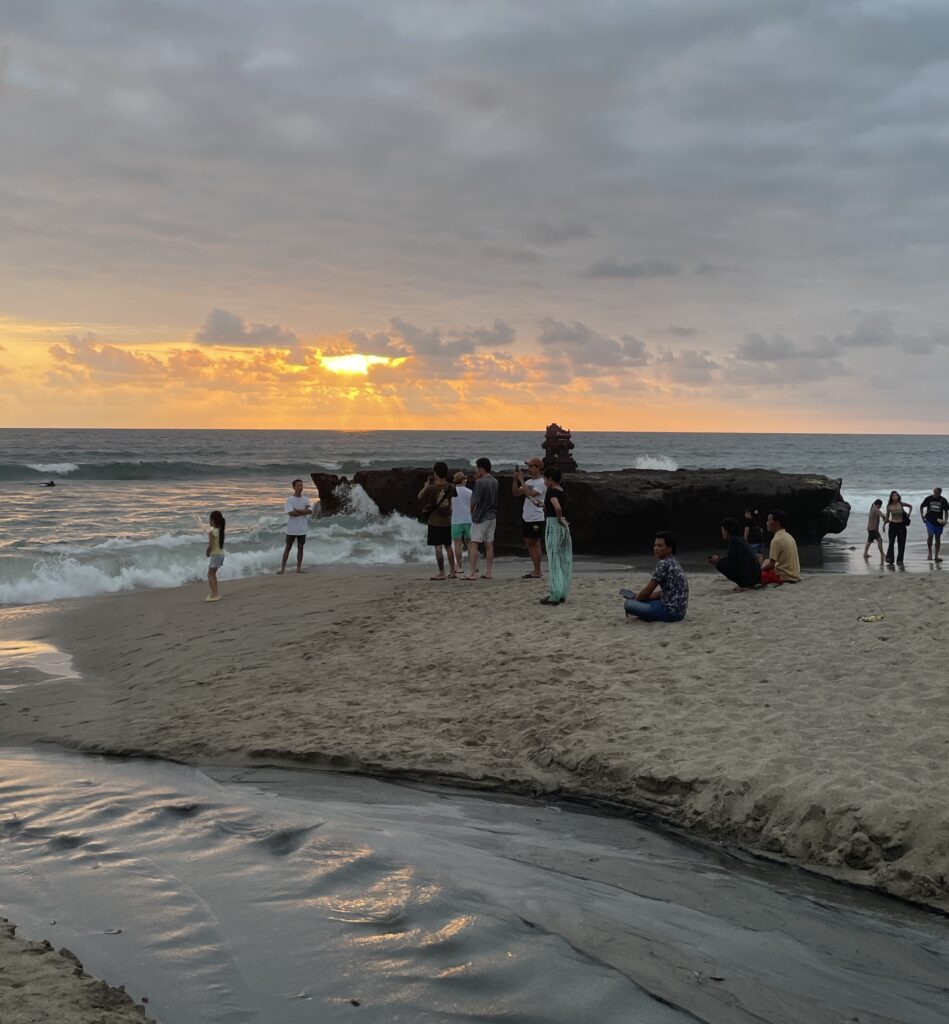
Bali may be known for its beaches, but not all of them are postcard-perfect for swimming.
Some spots, especially along the southern coast like Uluwatu or parts of Canggu, can have powerful waves and strong rip currents, which is great for surfers, but not so great if you’re hoping to casually float around.
Even beaches that look calm from afar can have tricky undercurrents. Pay attention to flags, warning signs, and ask locals or lifeguards if you’re unsure.
It’s not about avoiding these beaches completely, many are stunning and still worth visiting, but just know what you’re walking into.
If you’re traveling with kids or not a confident swimmer, aim for safer beaches like Jimbaran and Sanur. These are ideal areas in Bali for families.
This is something that really surprised me during my first trip to Bali, and it’s often one of the first things I mention when people ask me if Bali is worth visiting.
Stray Dogs Are Common — Know How to React
While Bali is beautiful, it’s not immune to challenges, and two things that often surprise first-time visitors are the trash and stray dogs.
It’s not uncommon to see litter, especially in more urban areas or during rainy season when garbage gets washed into waterways.
While locals and organizations work hard to manage it, over-tourism and poor infrastructure make it an ongoing issue.
Stray dogs are also part of everyday life in Bali. Most are harmless, but it’s smart not to approach or feed them. Some may carry diseases or become aggressive if provoked, especially at night.
If you’re an animal lover, consider supporting one of the local rescue groups doing amazing work on the island.
If you’re bitten, scratched, or have any exposed skin contact from an animal, seek medical attention immediately and get your rabies shots.
Scooter Rentals Aren’t for Everyone
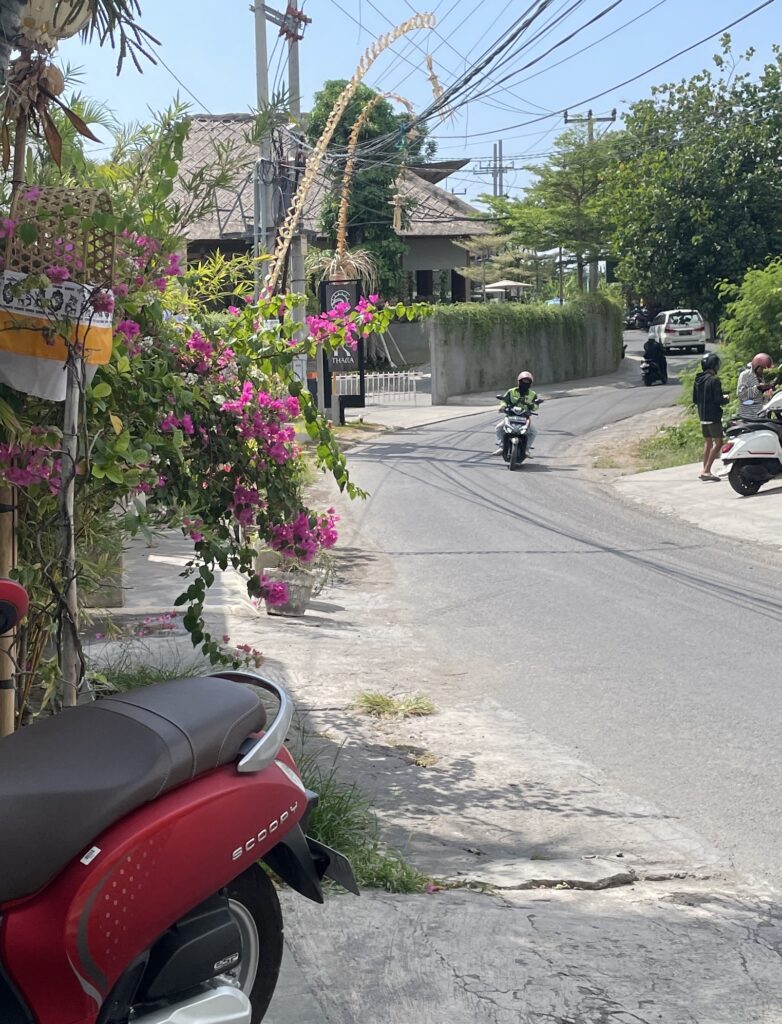
Renting a scooter in Bali might seem like the ultimate freedom, weaving past traffic, exploring hidden beaches, and breezing through the island with ease.
And while many travelers do it, that doesn’t mean it’s right for everyone.
I’m sure you’ve seen the videos online of travelers zipping around the island on scooters. But if you haven’t driven a scooter before or don’t have a license, I’d strongly advise against learning here.
Even though many scooter rental companies will hand over the keys without checking credentials, that doesn’t mean it’s a smart or safe move.
There’s a common (and very real) stat that circulates, one to two people die on the island each day from scooter accidents.
The roads are hectic, the terrain unpredictable, and local driving norms very different from what you might be used to.
Trying to “figure it out” on the go doesn’t just put you at risk, it adds to the chaos already happening on Bali’s roads.
If you’re not 100% confident, go with a driver or use apps like Grab or Gojek. It’s safer, less stressful, and honestly just easier.
Don’t Drink the Tap Water in Bali
Let’s keep this simple: don’t drink the tap water in Bali. Not at restaurants, not at your hotel, or brushing your teeth. Stick to bottled or filtered water only.
Bali’s tap water isn’t treated the way you might expect back home. Even locals often avoid it straight from the tap.
For travelers, it’s one of the most common ways to end up sick with Bali belly, and that’s the last thing you want on a beach day or temple tour.
I always use bottled water for everything, including brushing my teeth, and if your hotel provides a refillable water station, even better. Just be cautious, because this one simple mistake can really ruin your trip.
Dress Appropriately, Especially in Villages and Temples
Bali may be laid-back, but it’s also deeply spiritual, and the locals do notice how tourists dress, especially in more traditional areas.
When you’re visiting temples or walking through small villages, be respectful. That means covering your shoulders and knees, avoiding skimpy clothing and keeping beachwear where it belongs (on the beach, not in town or religious sites).
Most temples will offer sarongs at the entrance, and yes, you’re expected to wear them, even guys.
It’s not about fashion, it’s about showing respect in sacred spaces and being a humble traveler.
In busy spots like Canggu or Seminyak, sure, you’ll see bikinis and short shorts. But when in more conservative areas, take a moment to dress with a little more care. It’s a small gesture that goes a long way with the locals.
Overpacking Your Itinerary Will Backfire
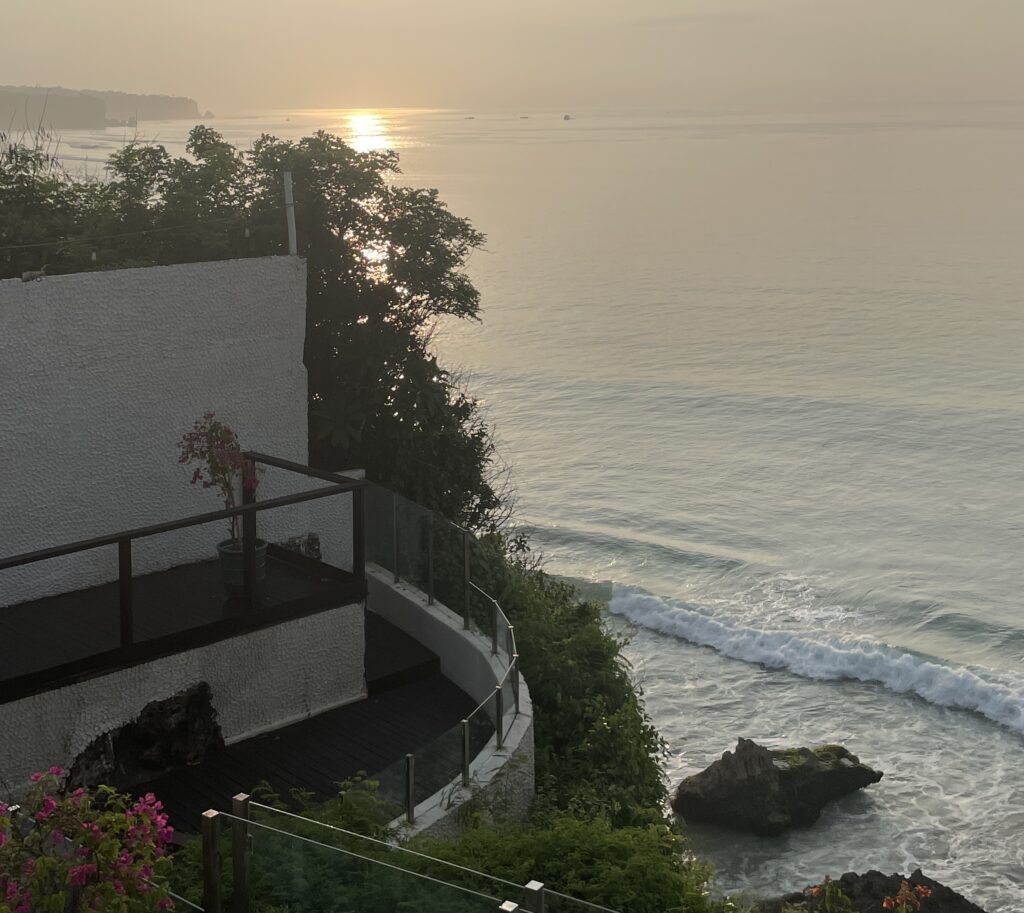
This is a common mistake many tourists make when visiting Bali. They plan a 10 day Bali itinerary and try to squeeze in the north, south, east, and west, only to spend most of their time packing, moving hotels, and stuck in transit.
Bali might look small on a map, but getting around isn’t as quick or easy as it seems.
Between the heavy traffic, winding roads, and spontaneous detours (like stumbling on a ceremony or local event), packing your days with too many activities is a fast track to burnout.
It’s tempting, I get it. With waterfalls, rice terraces, temples, beach clubs, and volcano treks, there’s so much to see. But trying to squeeze it all in means you’ll spend more time in a car than actually enjoying the island.
While it’s totally understandable to want to see as much as possible, cramming too much into your schedule often backfires.
Bali has a lot to offer, but the real magic happens when you slow down and soak in the places you do choose to visit.
Pick a few key areas that align with your vibe, whether it’s Ubud’s jungles, Uluwatu’s cliffs, or Canggu’s nomad cafe area. And give yourself time to enjoy them properly.
You’ll avoid travel fatigue and walk away with a much deeper appreciation for the island.
Those Monkeys Aren’t as Cute as They Seem
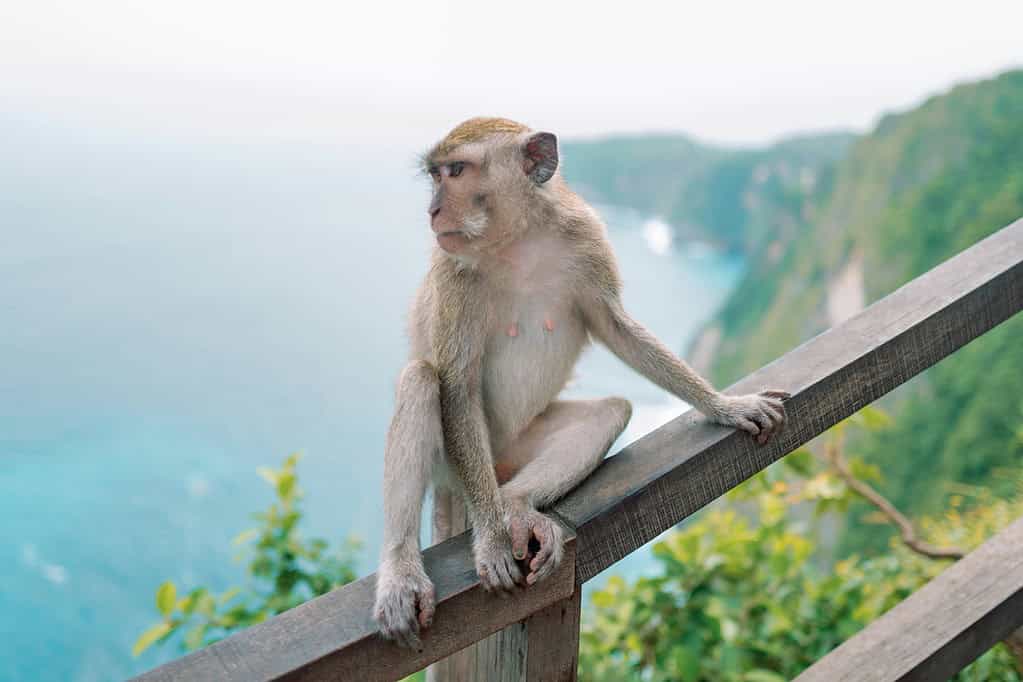
At first glance, the monkeys at popular spots like the Ubud Monkey Forest or Uluwatu Temple might seem adorable, playful, cheeky, and great for a quick photo. But don’t let their cute appearance fool you.
These monkeys are wild animals, and many have become aggressive due to years of tourists feeding them or getting too close.
They’re smart, fast, and not shy about snatching sunglasses, phones, hats, or even food straight out of your hands or bag.
Once they take something, good luck getting it back without bribing them with fruit or snacks. When you have a second, watch this video of monkeys stealing tourist things in Bali.
And beyond the inconvenience? There’s a real risk of scratches or bites, which means dealing with rabies concerns and potential hospital visits. Bali does have stray rabies cases, so it’s no small issue.
If you visit these monkey-heavy areas, hold onto your belongings tightly, avoid eye contact (they can see it as a challenge), and never try to feed or touch them.
Admire them from a safe distance, and you’ll avoid turning a fun stop into a stressful ordeal.
Avoid Anything Illicit — Seriously
Bali may have a laid-back, carefree vibe, but when it comes to drugs or anything illegal, the rules are dead serious.
Indonesia has some of the harshest drug laws in the world, and they’re strictly enforced. We’re talking long prison sentences or even the death penalty for trafficking.
Many tourists come to Bali, see the parties, the beach clubs, and the international crowd, and assume the same relaxed attitudes from back home apply here.
But this isn’t the West, Bali is in Southeast Asia, and the legal system here is anything but lenient when it comes to illicit substances.
Yes, these things exist on the island, and no, they’re not hard to find. But getting caught in the wrong situation, even by association, can turn your trip into a nightmare.
There have been high-profile arrests in the past, and authorities do not go easy on foreigners.
Bottom line? Avoid this at all costs. Don’t risk it, don’t test the rules, and definitely don’t assume you’ll be the exception. It’s simply not worth it.
Know What to Expect During Nyepi (Silent Day)
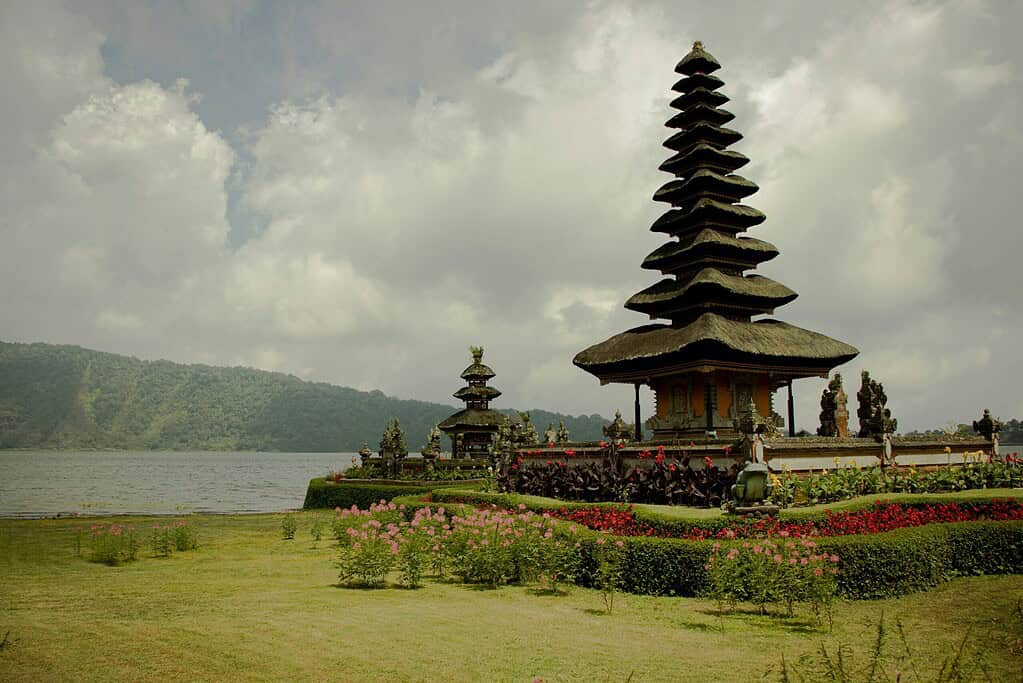
Nyepi, also known as Bali’s Day of Silence, is one of the most important religious holidays on the island, and it’s unlike anything you’ll experience elsewhere.
For 24 hours, everything on the island comes to a complete stop. No flights, no vehicles on the road, no lights, and no leaving your hotel or villa (yes, really).
Even the airport shuts down. It’s a time for reflection, silence, and spiritual cleansing for the Balinese Hindu community, and as a visitor, you’re expected to respect and follow the same quiet observance.
If you’re staying in a resort or villa, they’ll likely have food and indoor activities prepared, but you won’t be able to go outside, not even to the beach.
That said, experiencing Nyepi can be powerful. The night sky becomes incredibly clear without light pollution, and the stillness across the island is surreal.
Nyepi usually falls in March, so it’s smart to check the calendar before booking. Bali’s holidays often overlap with seasonal shifts, so if you’re curious about weather patterns and ideal months to visit, check out this guide on the best time to visit Bali.

Final Thoughts on What Not to Do in Bali
Bali is one of the most beloved destinations in the world for good reason, it’s beautiful, spiritual, lively, and full of adventure.
But as much as it’s a dream for many, it’s still a real place with real people and cultural nuances that deserve respect.
Many of the common tourist mistakes in Bali come from a lack of awareness, not bad intentions.
Another mistake is staying in the wrong area, check my guide on where to stay on Bali.
So if you’ve made one or two of these mistakes already, don’t beat yourself up. Traveling is about learning, growing, and being open to new experiences (and yes, sometimes getting things wrong).
The key is simple: slow down, stay respectful, and understand that Bali isn’t just a playground for tourists, it’s home for many.
And be smart when visiting, there are a few Bali travel tips mentioned above that, if ignored, can really ruin your visit.
If you travel mindfully, stay flexible, and show appreciation for the island and its people, your trip will be better for it, and so will your impact. Enjoy Bali!
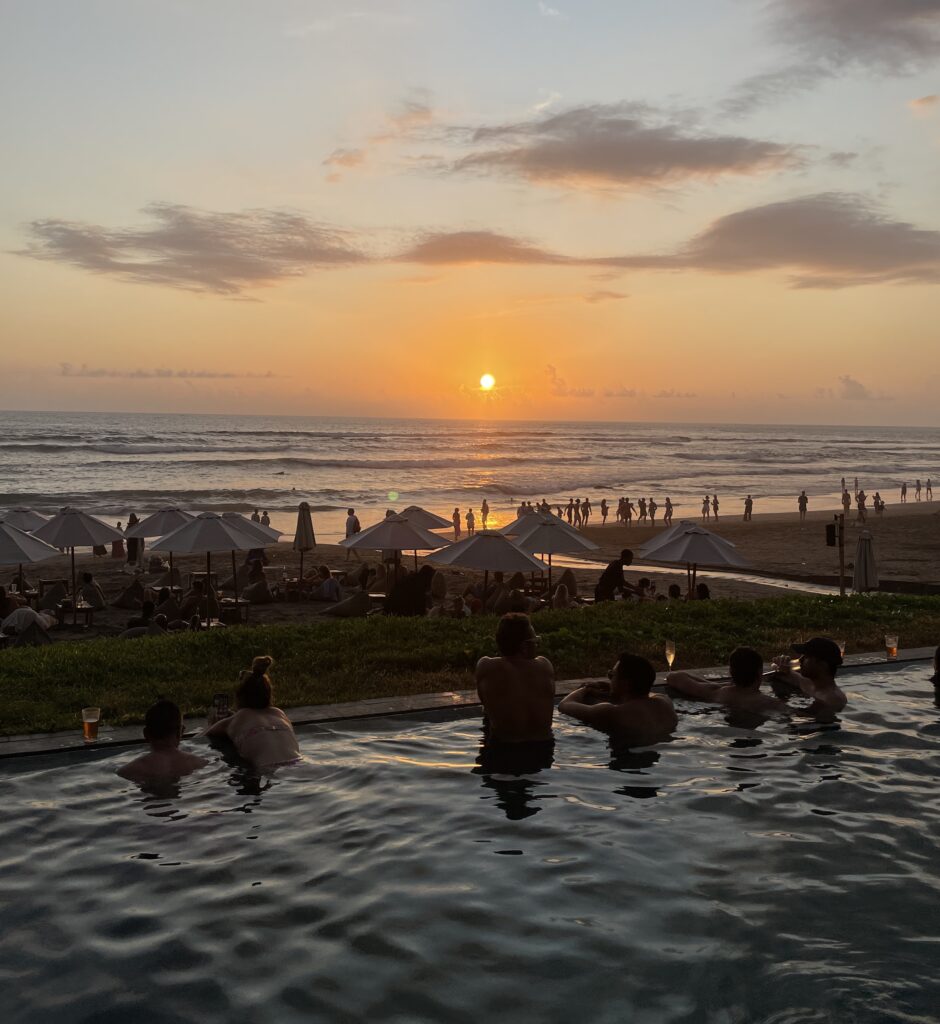
What should you avoid doing in Bali as a tourist?
Avoid disrespecting local customs, drinking tap water, driving a scooter without experience, and engaging in anything illicit. Being a mindful traveler will help you enjoy Bali safely and responsibly.
Is it safe to rent a scooter in Bali?
It depends on your experience. Bali’s traffic can be chaotic, and accidents are common. If you’re not confident on two wheels or don’t have a license, it’s best to skip it.
Can you drink the tap water in Bali?
No, avoid drinking tap water in Bali. Stick to bottled or filtered water, and be careful with ice or raw foods washed in local water to avoid stomach issues.
What are the most common tourist mistakes in Bali?
Overpacking your itinerary, ignoring temple etiquette, not researching Nyepi (Silent Day), and being careless with street offerings or stray dogs are some of the most common tourist mistakes to avoid in Bali.

